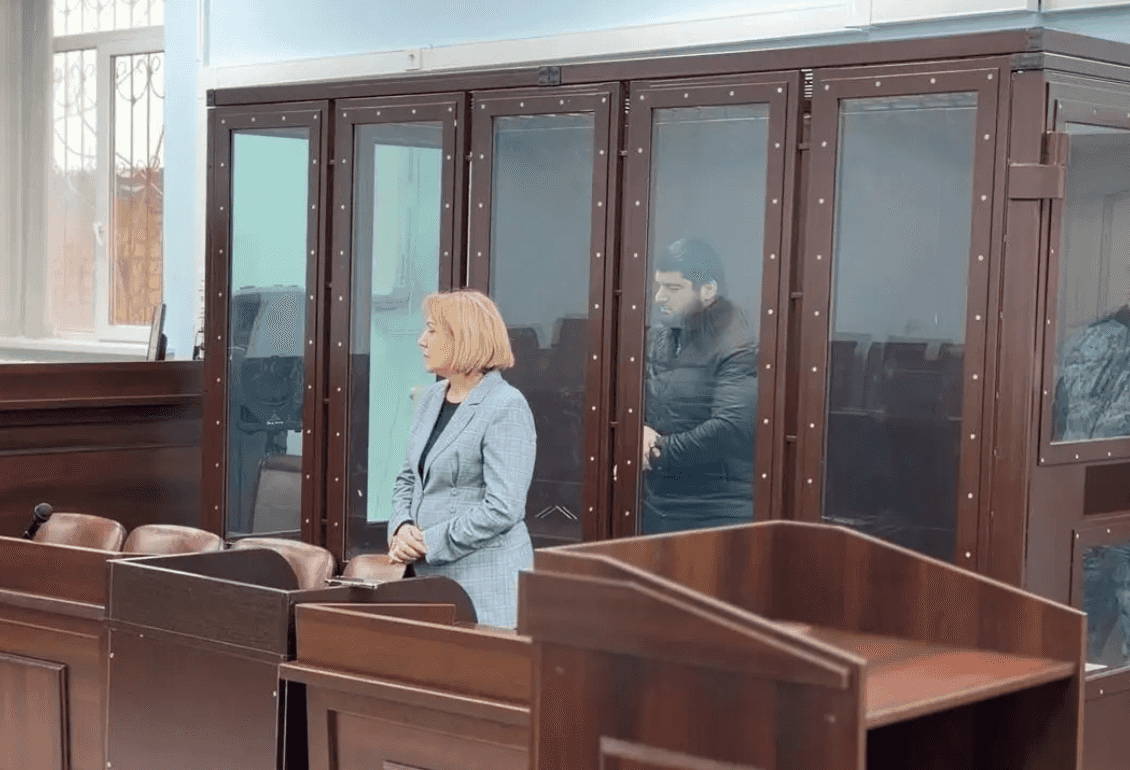

 Is Adam Aliyev alive and who is threatening her and her friend? Is it easy to change gender in Russia and who was the first to break the law on personal life? What punishment can those who threaten Adam receive? Daptar conducted an investigation.
Is Adam Aliyev alive and who is threatening her and her friend? Is it easy to change gender in Russia and who was the first to break the law on personal life? What punishment can those who threaten Adam receive? Daptar conducted an investigation.
The village of Chontaul, where Adam Aliyev is from, is located in the Kizilyurt district of Daghestan; it is home to about 10 thousand people. According to one resident, Ramazan M, for the last few weeks, Adam and everything connected to her has been the main subject of conversation in the village.
‘His parents are good people; simple, hardworking. Many residents of the village are, of course, sorry for the parents. There are many different discussions happening. One person condemns Adam, someone else says that it’s his private matter, but there is no talk that he should be killed. Our people aren’t that brutalised’, Ramazan said.
A major scandal broke out after a photocopy of Adam’s passport and a statement from the Clinical Centre for Reconstructive and Plastic Surgery (supposedly proving that Adam underwent a sex change operation) was circulated on social media. The perturbation of social media users has even fallen upon a young woman, whose phone number was indicated on the copy of Adam’s passport. Every day Zaynab receives text messages or phone calls from complete strangers.
‘Every day I receive up to 300 calls or messages. Someone asks whether it’s true, someone else makes stupid jokes, pretends to be Adam and writes on his behalf, another one makes threats. I was threatened by Daghestanis and even by Chechens, who’d say they called on behalf of Kadyrov. Still, I haven’t changed my number, because I hope that Adam will get in touch with me. I really want him to, then I will help him, wherever he is. I’ll always be on his side, even if he really did this operation’, says Zaynab.
According to her, the last time Adam got in touch with her was about a week after the news about her spread on the internet.
‘He laughed and said that it was all a lie. I advised him to call his relatives to tell them that he was still a man and that no operation had been made. Since then, we haven’t been in touch. I don’t know whether he talked with his family. I can’t contact him myself, his phone is turned off and I don’t know what’s happening with him. He didn’t say back then that someone was threatening him. It’s interesting, where were his relatives when he had money problems, when he had nothing to eat, when he had no place to stay? Adam’s parents kicked him out of the house when he was seventeen. He somehow made it to Makhachkala and found a job. No one helped him back then. There was no one around! And now suddenly it turns out he has so many relatives!’
According to Zaynab, Adam and her have been friends for eight years. Still, she doesn’t believe that her friend could have undergone a sex change.
‘In June, I was in Moscow; I met him. Everything was as usual, I didn’t notice any changes either in his appearance or mood. He was an ordinary guy. In general, as long as I have known him, I have always seen him with girls. I guess I’m the closest person to him. If he had an operation, I would be the first one to know. But he hasn’t told me anything.’
‘I think that the information leak happened in the civil registry.’
The statement from the Clinical Centre for Reconstructive and Plastic Surgery states that a patient named Adam Aliyev underwent surgery to form ‘external genitalia of female type’ as well as a resection of the Adam’s apple. The statement was signed by the head of the centre, professor Mikhail Sokolshchikov.
In an interview with a journalist from Daptar, professor Sokolshchikov confirmed that he had a patient named Aliyev.
‘I can’t give any details because there is such a thing as a medical confidentiality. After the operation, we gave the patient a statement, which he took with him to the civil registry in order to change sex in his passport. From my point of view, it is not only unethical to disclose this person’s personal information, I mean, a crime was committed against him’, said Mikhail Sokolshchikov.
Daptar tried to contact employees of Kizilyurt’s district civil registry in order to find out whether a person named Adam Aliyev came to them with his documents. After an employee in the registry found out she was speaking to a journalist, she said that she wouldn’t give interviews over the phone and hung up.
‘I personally didn’t see his corpse, neither did my colleagues. Only in photographs.’
A few days ago, a number of online media outlets published a picture of a young woman’s corpse with a caption stating that it was Adam Aliyev, brutally murdered after a sex change. As Daptar found out, the photo was old; it first emerged online in 2013. No one has yet confirmed the alleged murder of Adam. Although in one publication it was mentioned that a body was brought to Chontaul. The head of the village, Kazakhbi Umalatov, told Daptar: ‘I personally didn’t see his corpse, only in photographs which I received on WhatsApp’.
Daptar has attempted to find Raina (that’s the name Adam chose after her sex change). After long negotiations and correspondences, our journalist spoke with someone who confirmed under the condition of anonymity, that Raina is alive and well. Daptar can’t disclose any details, including Raina’s current whereabouts, for the security of our sources and the publication’s heroes.
One would like to believe that this is how Raina’s story ends, but internet users in the North Caucasus are still unsettled. Users on social networks who consider themselves Muslims openly demand extreme measures. However, according to an employee of the fatwa department of Makhachkala’s Dzhuma Mosque, Magomed Magomedov, ‘Islam categorically forbids killing a person who underwent a sex change!’
‘This person takes a sin upon him, for which he must answer himself before God. Yet to kill such a person is a grave sin. There is a hadith which speaks about the human appearance as created by Allah. Based on this, we say that sex or appearance shouldn’t be changed without good reason. According to Islam, even plastic surgery of the nose shouldn’t be done, when one finds it curved, for instance. But one can do it if this nose affects one’s health. If a person believes that they weren’t born in the right body, there is no reason for a sex change, because this decision is based solely on one’s personal feelings.’
The photograph of the statement from the Clinical Centre for Reconstructive and Plastic Surgery indicates the diagnosis Adam entered the clinic with — nuclear transsexualism. While outraged Daghestanis were not interested in details, Daptar’s journalist decided to find out whether it is possible to assume that in cases of nuclear transsexualism, an operation is permitted as a remedy for a condition which affects one’s health, and whether it is easy to get such a diagnosis. One answer came immediately.
‘It’s not a diagnosis just anyone can get. First, a patient is examined in a psychiatric hospital and watched for several weeks by a special commission, which reveals whether this is the right diagnosis. A sex change operation is carried out only with an official document with the conclusion of the relevant expert committee. It’s not possible to fake it’, said employees of the Clinical Centre of Reconstructive and Plastic Surgery.
Renowned specialist in psychiatry and member of the New York Academy of Sciences, PhD Viktor Brutman, provides a more detailed response on the topic in his interview for portal 1nep.ru:
‘The psychiatrist’s task is to identify mentally ill patients with delusions and suggestible hysterics by comparing their volitional, emotional, mental, and other functions in order to distinguish the real nuclear anomaly. If this is delirium — we treat delirium; if it is psychopathic hysteria — we use psychotherapy; if this is a nuclear form — we may use surgical therapy for sex reassignment in addition to psychotherapy. A real transsexual person is sort of a steadfast tin soldier since the day they were born. And you can really help them only by giving them what they want.’
‘There is a woman living in my male body. I understand that I’m a woman, while others don’t.’
According to Brutman, sex change is not carried out on the whim of a patient or a perverted fantasy. It is important to understand that transgenderism is not a disease, but a self‐identity, and a ‘cure’ is unattainable.
‘With a violation of one’s sexual identity, the body becomes one’s prison and causes grave suffering. “There is a woman living in my male body. I understand that I’m a woman, while others don’t.” Such transsexual persons can often only be helped by surgery, by giving them a sex change operation. When society is hostile, there will be a major conflict in any case — up to serious complications, violent mental reactions, suicides.’
The internet buzz about the story of a sex change once again confirmed one dismal fact: while discussing a hot topic, in most cases people don’t want to delve into medical or legal technicalities. They believe that it is their right to disclose someone else’s juicy secrets, while public endorsement of violence and even direct calls for murder are just expressions of their own opinions.

According to lawyer Yelena Denisenko, calls for a human’s physical extermination are a criminal offence:
‘These actions fall under the article of the Criminal Code “Threat of murder and causing grievous bodily harm”. A man who receives such threats can go to the police or to the prosecutor’s office with a request to investigate and prosecute. In this case, the application must contain screenshots of web pages with threats. In this case, there is also a violation of the law “On personal data”. Processing of personal data can only be made with the consent of an individual person — only processing, not publishing them in the public domain. This violation provides for criminal liability under the article “Violation of privacy”. In this case, the victim should write a statement to the police and an investigation will take place. The punishment for this crime may vary from a fine of up to 200 thousand roubles ($3,350) to imprisonment of up to two years.’
Daptar’s editors call on the Investigation Department of the Investigative Committee of Russia in Daghestan to take into account the threats against Adam Aliyev, and to conduct an adequate investigation.
Aida Mirmaksumova








